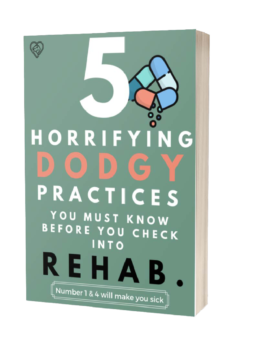When drug addiction and drug abuse are mentioned, they both often get lumped together. However, there is a difference between the two. Drug addiction is when someone has an intense craving for drugs that can’t be controlled or forgotten about. They will do anything to have more of the drug in their system because it feels like life without it isn’t worth living. Drug abuse refers to using drugs recreationally and then stopping on your own terms. It’s still a drug, but it doesn’t have the same intensity as drug addiction.
Why drug addiction and drug abuse are different
When drug addiction and drug abuse are mentioned, they both often get lumped together. However, there is a difference between the two. Drug addiction is when someone has an intense craving for drugs that can’t be stopped. The characteristics of this phenomenon are:
- Obsession: drug obsessions are recurrent and persistent thoughts, impulses, or images that cause distressing emotions such as anxiety or disgust. When someone is in obsession they cannot break the thought pattern despite wanting to.
- Compulsion: Compulsions are repetitive behaviours or mental acts that a person feels driven to perform in response to an obsession and in this case that results in using alcohol and drugs.
- To sum it up, when a person is experiencing addiction, they continuously use drugs, despite not wanting to. This is why when you talk with people stuck in addiction they often talk about not having a choice. Obsession and compulsion are what facilitates this feeling and perception.
Drug abuse
Repeated harm can still be caused when it comes to drug abuse, however, once someone has finished their drug-using session they don’t experience the continuing and recurrent obsession and compulsion.
If you do identify with drug abuse, you shouldn’t rest on your laurels and think “I’m okay and I don’t have to worry about full-blown addiction”.
Connection Based Living thinks about addiction as a spectrum. You can fall at any point on that spectrum at any time. Usually, it is in fact repeated instances of drug abuse that create a pattern and move an individual into full-blown addiction on that spectrum.
One of the toughest things for individuals to also identify is when drug abuse crosses over into addiction. Denial is a massive element of addiction and often people don’t realise that they have moved into addiction until they are really deep in their addictive patterns, which can be catastrophic because the more ingrained your addictive patterns become the harder it is to change.
How to overcome denial and avoid addiction
In order to prevent yourself from moving into the addiction spectrum, it’s important to understand denial – and to understand denial, you have to be aware of the characteristics of denial. When you understand the characteristics, you can start to catch them early and make the necessary changes.
Denial is a state where you distort what is really happening. You might ignore the problem, minimize people’s concerns or blame others for issues you experience in your life. When it comes to addiction, whether it’s to alcohol or drugs, denial is a powerful coping mechanism to avoid or delay facing the truth.
For people struggling with addictive patterns, denial is extremely common. No one wants to admit they are struggling with alcohol and/or drugs; denial allows them to make the reality more flattering. In denial, a person may resort to various behaviours, including:
- Minimizing: If the addiction is brought up, the person may act like you’re blowing things out of proportion or exaggerating. They may say things like “it’s not that bad” or “people do way more than I do”.
- Rationalizing: People with addictions will rationalize their addiction, saying they are stressed and need a little help getting through or that they earned a reward for their hard work.
- Self-Deception: Self-deception is a powerful denial mechanism where the individual convinces themselves that things aren’t that bad or as severe as they really are.
If you find yourself or your loved one acting out any of these three above characteristics, it’s a good indication that denial is present and you may have to do something about it.
Whether it’s drug abuse or drug addiction, we can help. Connection Based Living offers free consultation sessions in which we can help you discover the best way to support you or your loved one, and guide you on selecting the right treatment option. To book a free consultation you can click the link below:

5 Horrifying Dodgy Practices You Must Know Before Checking Into Rehab.
Free Report
